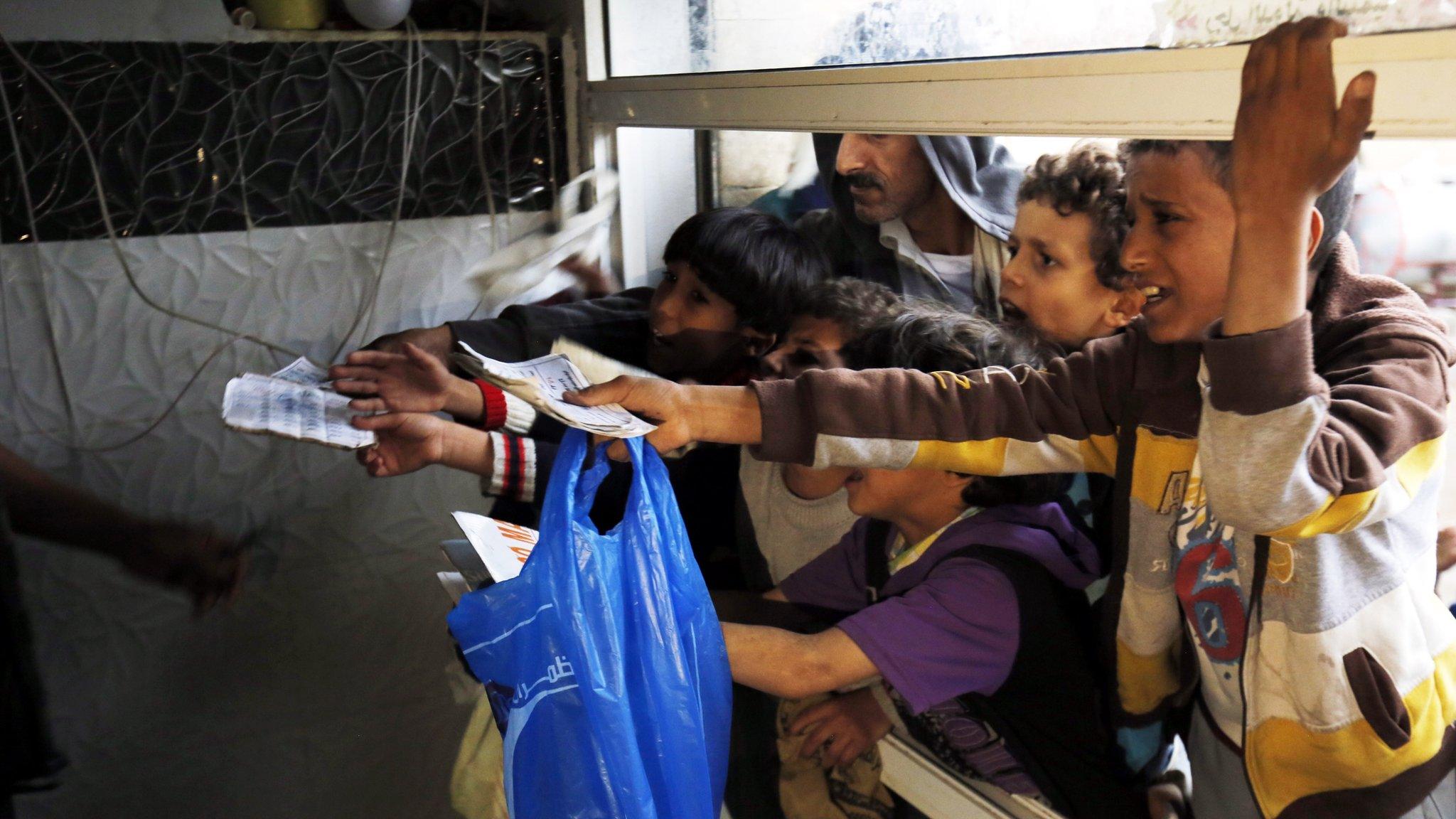Yemen war: Civilian killed in Houthi attack on Saudi airport
- Published
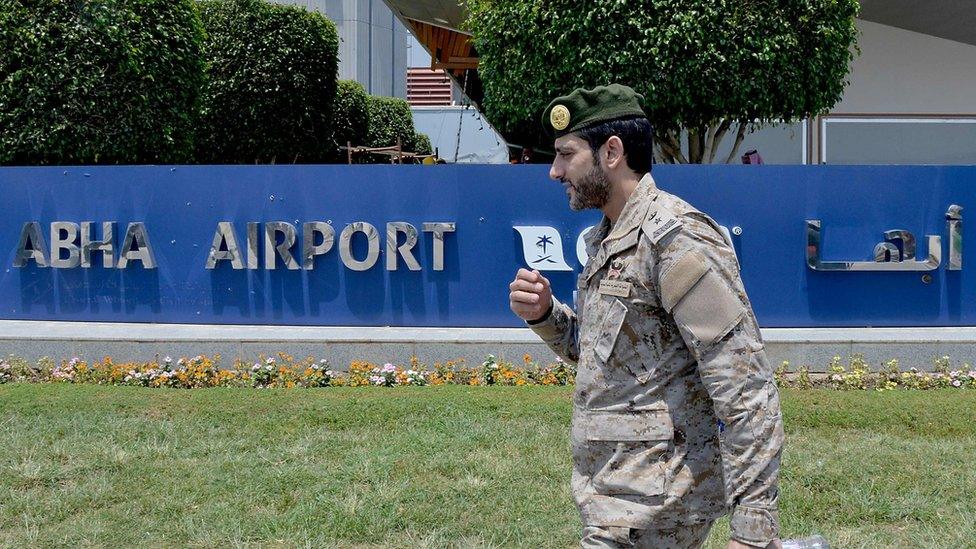
Abha airport is 110km (70 miles) from Saudi Arabia's border with Yemen
A Syrian civilian has been killed in an attack by Yemen's rebel Houthi movement on an airport in southern Saudi Arabia.
A spokesman for the Saudi-led military coalition fighting in Yemen said 21 other people were injured when Abha airport was struck on Sunday evening.
He did not say what type of weapon was used. But a Houthi TV channel said its fighters had targeted airports in Abha and nearby Jizan with drones.
It is the second time Abha airport has been hit in less than two weeks.
On 12 June, two children were among 26 civilians injured when a cruise missile launched by the Houthis struck the arrivals hall. Human Rights Watch denounced it as an apparent war crime.
Coalition spokesman Col Turki al-Maliki said the "terrorist attack" on Abha airport - about 110km (70 miles) from Saudi Arabia's border with Yemen - took place at about 21:10 local time (18:10 GMT) on Sunday.
The injured civilians were from Saudi Arabia, Egypt, India and Bangladesh, and included three women and two children, he added.
Saudi state-owned Al Ekhbariya TV broadcast video footage that showed damage to a McDonald's restaurant at the airport and several parked vehicles.
Allow X content?
This article contains content provided by X. We ask for your permission before anything is loaded, as they may be using cookies and other technologies. You may want to read X’s cookie policy, external and privacy policy, external before accepting. To view this content choose ‘accept and continue’.

Houthi-run Al-Masirah TV earlier cited a rebel military spokesman as saying it targeted "military sites" at Abha airport and Jizan airport - about 150km (94 miles) to the south - with Qasef-2K drones.
The spokesman added: "More painful operations will continue if the Saudi-led aggression and siege against Yemen continue."
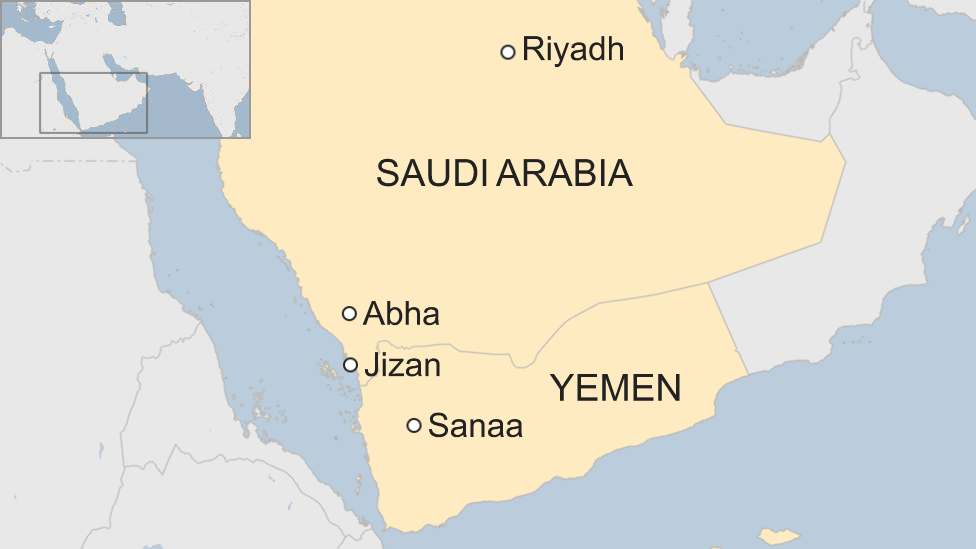
The Qasef-2K is designed to blow up about 20m (65ft) off the ground, sending shrapnel towards a target. The coalition has said the drones are "Iranian made", but Iran has denied supplying weapons to the rebels.
Col Maliki said the Houthis had "continued its immoral practices by targeting civilians and civilian infrastructure protected under international humanitarian law and its customary rules", and that the attack could amount to a war crime.
He stressed that the coalition would "take urgent and timely measures to deter this terrorist militia and ensure the protection of civilians and their properties".
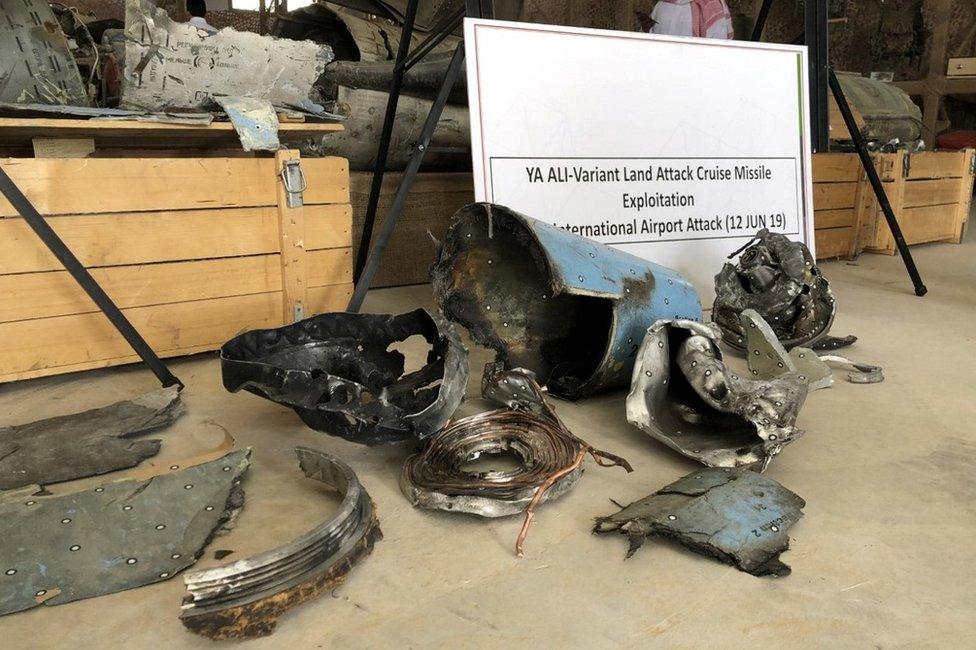
Saudi authorities displayed the remnants of the cruise missile that hit Abha airport on 12 June
The Houthis have repeatedly launched rockets and missiles toward populated areas in Saudi Arabia.
Most of the missiles have been intercepted by Saudi air defences. But at least three civilians have been killed by falling debris from intercepted missiles.
Yemen has been devastated by a conflict that escalated in March 2015, when the rebels seized control of much of the west of the country and forced President Abdrabbuh Mansour Hadi to flee abroad.
Footage obtained by the BBC gives a rare insight into life in Taiz, where civilians are at constant risk from snipers
Alarmed by the rise of a group they believed to be backed militarily by regional Shia power Iran, Saudi Arabia and eight other mostly Sunni Arab states began an air campaign aimed at restoring Mr Hadi's government.
The UN says the fighting in Yemen has left at least 7,000 civilians dead and 11,000 injured. About 65% of the deaths have been attributed to coalition air strikes.
Thousands more civilians have died from preventable causes, including malnutrition, disease and poor health.
- Published14 June 2019
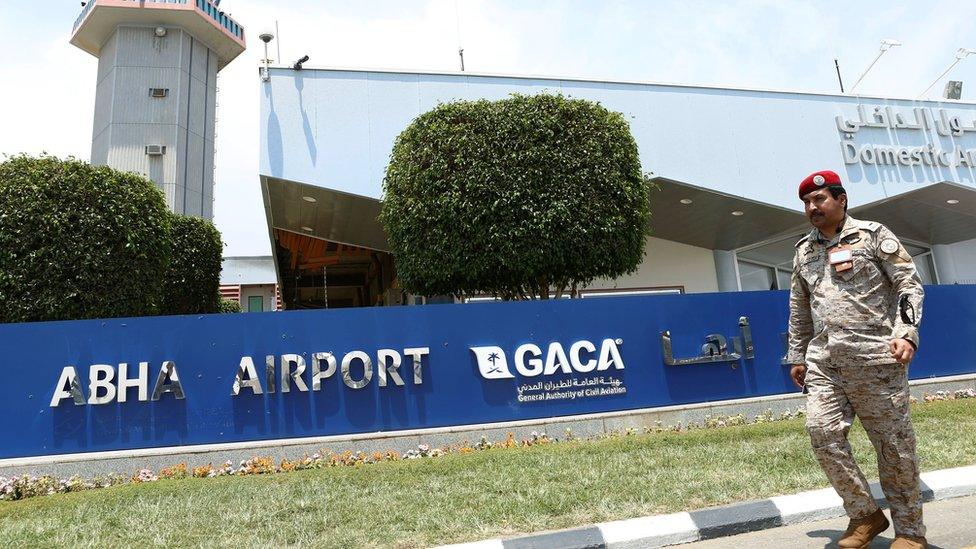
- Published12 June 2019
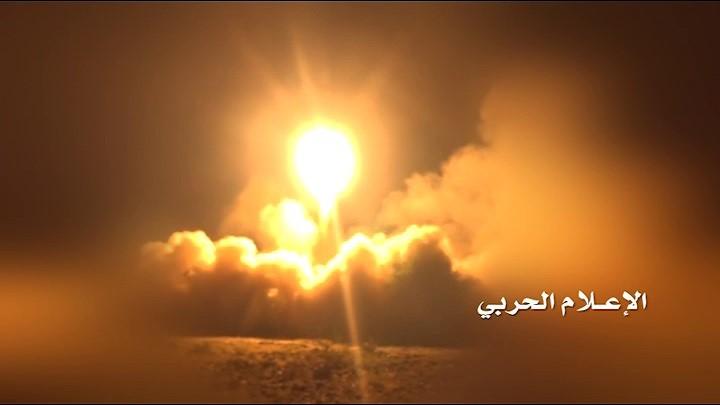
- Published14 April 2023
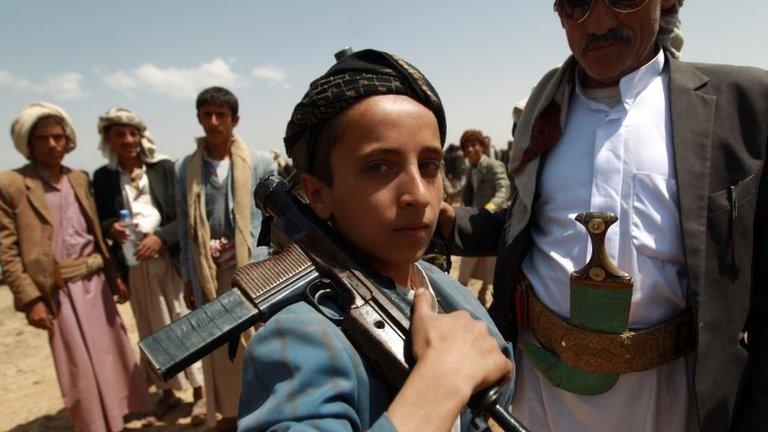
- Published22 May 2019
